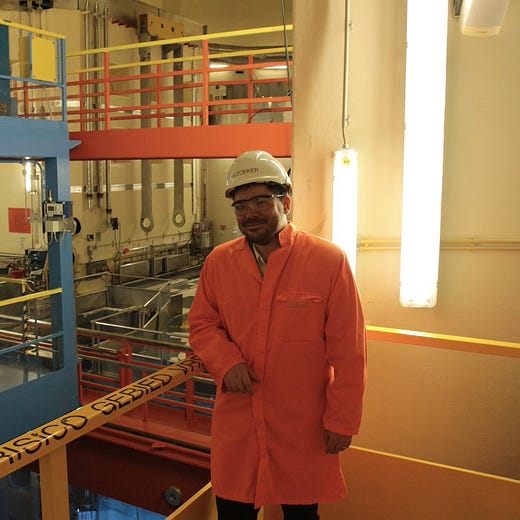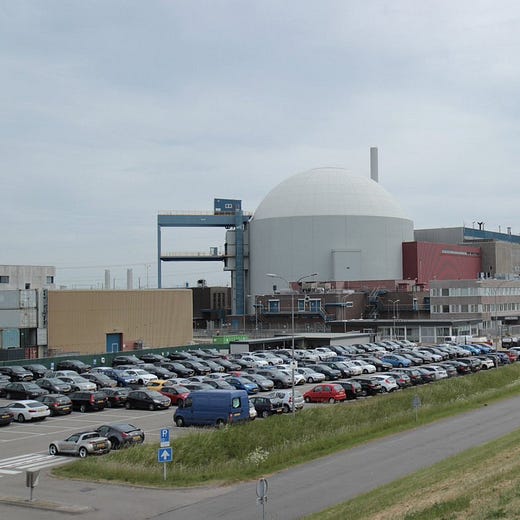Numlock News: Alexander Kaufman on nuclear energy's comeback moment
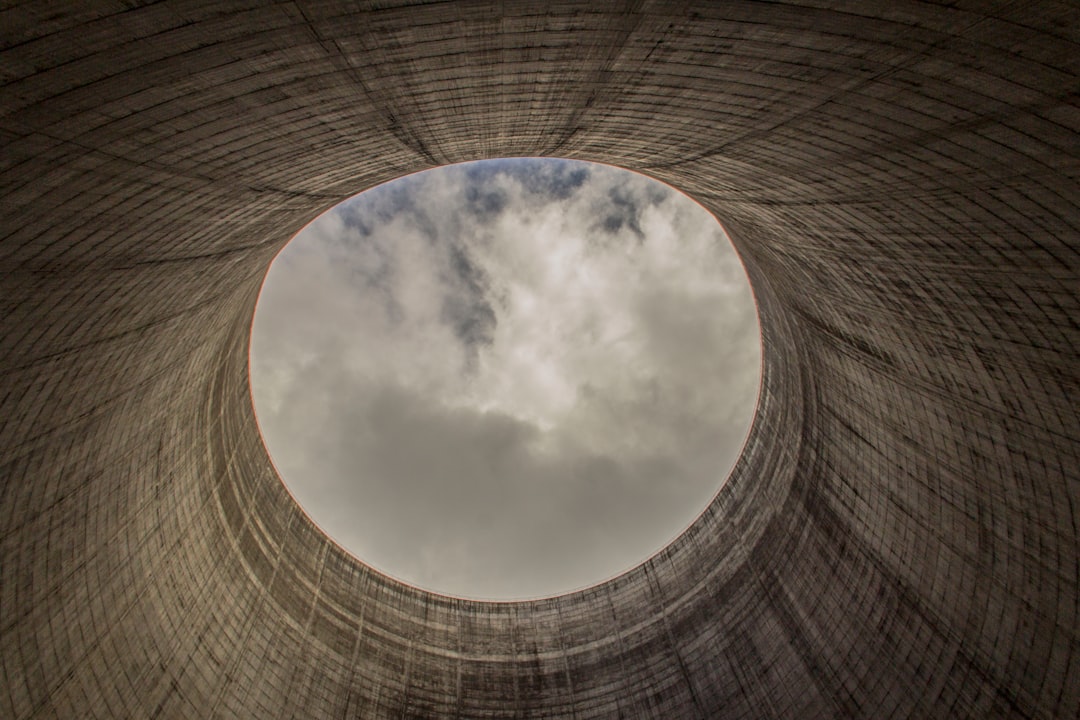
By Walt Hickey
Welcome to the Numlock Sunday edition.
This week I spoke to Alexander Kaufman, who wrote The Netherlands, Facing Energy And Climate Crises, Bets On A Nuclear Revival for HuffPost. Here's what I wrote about it:
Right now the Borssele Nuclear Power Station in the Netherlands provides about 3 percent of the electricity in the country, and after 49 years of solitary service it may be getting something fairly unconventional in the European nuclear power industry: a friend. Yes, while the Germans and the Belgians have decommissioned their clean nuclear energy generation infrastructure to swap to coal and Russian gas, the Netherlands is a country actually planning to build at least two new reactors to green their grid. While nuclear energy has been controversial, amid the demands of climate change right now 51 percent of the Dutch support new nuclear energy investments and just 14 percent oppose. There’s a solid upside to nuclear investment: Romania has two nuclear power complexes and plans to build two more, and aims to be an energy hub for the central region of the continent.
Kaufman is one of my favorite climate reporters, and this story exploring the resurgence of nuclear power in an age where the environmental math is all about carbon is a great one.
We spoke about what’s going on in the Netherlands and how nuclear is revolutionizing how countries like Finland, Romania and Japan address a dire global moment for energy needs.
He can be found at HuffPost, on Twitter and he’s got a really great newsletter that you should check out that updates when he drops a new big story.
This interview has been condensed and edited.
Alex, you wrote a really magnificent story for HuffPost all about the Dutch, and how a shift is happening in some portions of Europe when it comes to nuclear energy. Let's just back out a little bit, can you tell me a little bit about the history of nuclear energy in Europe, and why it's more complicated there than it might be in other places?
I mean, nuclear energy is pretty complicated in any democracy at this point in time, given the public concern that exists in many places over the risks exemplified by disasters from Three Mile Island to Chernobyl to Fukushima. I think that there is a longstanding association for many people of the nuclear power industry with the nuclear weapons industry. The two were born of the same mother, so to speak, and so they are quite linked. Activists have, over the past 80 years that nuclear power has existed, sought to closely tie those two things together, and in some cases with good reason.
So that is the context, I think, for where many of the challenges today stem from. But I think it helps to maybe just give a broad overview of how nuclear is seen across the continent. The U.K. has had a large nuclear fleet. France, in a record-breaking 15-year spree beginning in the 1970s, built 56 nuclear reactors and virtually decarbonized its whole electric grid.
Wow.
The Nordic countries, especially Sweden and Finland, are very pro-nuke, and have generated a lot of their power from nukes for a long time. And then you have a lot of the Western European countries, and central, including Germany and Belgium, that have taken a very hard-line stance against nuclear power and have been rapidly decommissioning them. Then you get further east and you actually have a lot of those former Soviet countries having a much more amenable relationship to nuclear power, perhaps because of the legacies of those things there. That's where things are right now.
The Netherlands would count among those, among its neighbors. The Netherlands had built one, basically small test reactor, the Dodewaard Station, in the 1950s. It moved on and built its first full-scale commercial reactor, which is still very small by the standards of modern nuclear fission reactors, in the 1970s; it opened in 1974. From that point on, they had planned to build another six, and those plans were scuttled by various things stemming from opposition and public dislike of nuclear after the Chernobyl disaster, to a difficulty lining up financing. Those things are obviously interrelated.
And so today, the Netherlands has one nuclear plant, one reactor: It's the Borssele reactor that opened in '74. It's still going. It has the capacity to produce about 3 percent of Dutch electricity needs, and it remains this lonely player as the two countries that border the Netherlands, Belgium and Germany, continue to rapidly decommission their own nuclear fleets.
So the story is this really incisive look at this European country that has had a legacy of skepticism of nuclear energy, and how that might be coming to an end. It looks like the reactor might be getting a new one.
That's correct. So for the past 12 years, the government in power has been supportive of nuclear. It is the conservative prime minister, Mark Rutte; his party has been strong supporters of nuclear for a long time. I mean, traditionally, support for nuclear power has mapped in many democracies onto the conservative side of the political spectrum, for various reasons. And because of nuclear being a high priority target for environmentalists and environmentalists falling into the left-wing political coalitions, it led to a natural situation there.
But the conservatives in the Netherlands have wanted this for a long time. They tried to make new reactors happen over a decade ago, and Fukushima really made that difficult. The government has stayed supportive of these things, but hasn't been able to muster the political will for it until pretty recently, which, there were a few things that actually made that change.
One was that you had this growing pro-nuclear movement that was looking at the increasingly dire warnings coming from climate scientists and from the U.N. intergovernmental panel on climate change and saying, oh my God, we really need to do something about this, and a surefire way that we know we can produce huge volumes of low-carbon electricity is with fission reactors. We've been doing it for almost a century. So there started being a growing appetite and a more active movement in support of these things. Their increased activity and rallies that they were holding across Europe in support of nuclear helped to inspire a lengthy segment on the Netherlands equivalent of John Oliver.
What?
Yeah. It's this guy, Arjen Lubach, who in tone, style, format, everything, is very similar to John Oliver. I would add to that list the rigor with which he researches and presents segments. So he presented this widely viewed segment on why fears of nuclear were disproportionate to the benefits of the relative safety, and that we should reconsider it. Within days, members of Parliament from Prime Minister Rutte's party drafted a new proposal to build more reactors.
Ultimately, earlier this year, the coalition agreement to form a new government after their elections last year allowed for the construction of two new reactors and set aside money to help build those, and created a list of potential places where it could go. So that's where we find ourselves now.
It's really compelling that all it really took was an honest distillation of the pros and negatives. I think that the negatives tend to get a lot of air time and got a lot of air time for quite some time. But there are a lot of advantages to cracking atoms, specifically from a carbon perspective. Do you want to get into why Europe may be particularly well suited, whether it's a density standpoint, an economic standpoint, for nuclear energy?
I'll start, before even getting specific to issues of Europe, I would say there are probably many issues in Europe that make it less suited, but I think I'll just go generally with what the benefits of nuclear power are. They're often, as I think you rightly point out, subsumed in this broader discussion about the risks. Nuclear power is by far the most efficient source of generating energy for electricity. A gummy bear is about the same size as a uranium fuel pellet. And one fuel pellet produces enough power to drive an electric car 20,000 miles.
So if you were to combine those into big stacks of gummy bears, the way that nuclear power rods work, you can easily produce enough electricity to power millions of electric cars and homes with such a small amount of this fuel. That's really unmatched across the board. That is unmatched by fossil fuels in terms of volume, and certainly that is unmatched by renewables, which require really vast wind turbine operations or solar panel farms in order to generate equivalent volumes of electricity. And therein lies another problem.
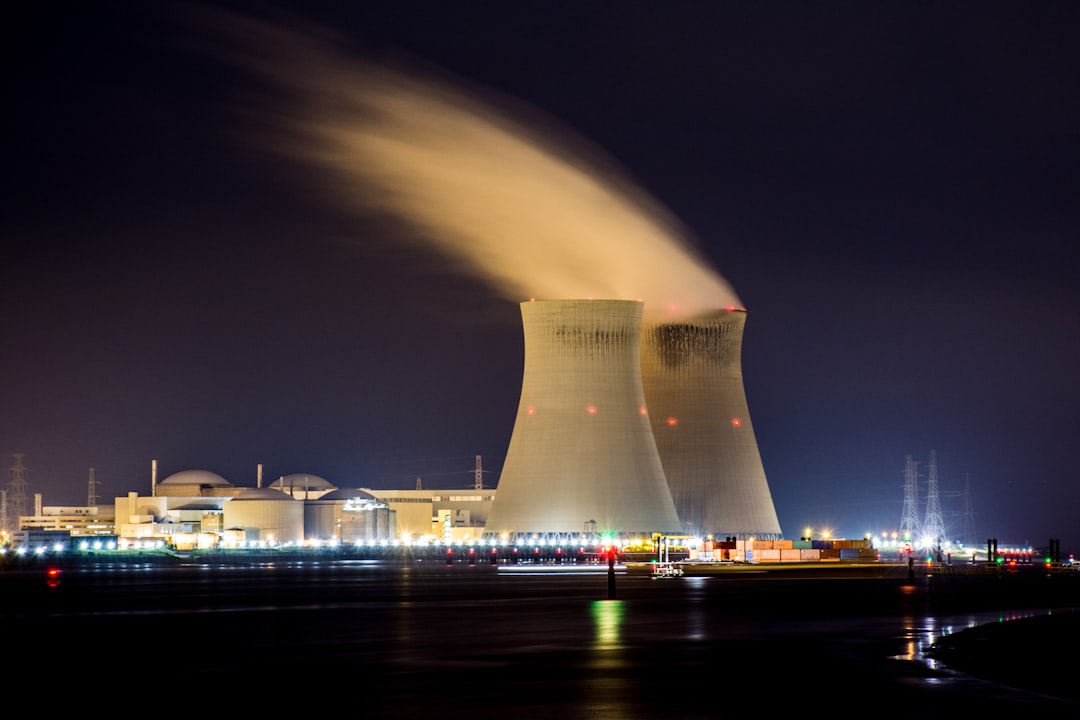
We understand the issues of why we need to stop using fossil fuels, but most people, I think, don't understand why renewables in their present form are not up to the task of powering a fully industrial society. There is almost no one who says that they are. There's a handful, this one scientist named Mark Jacobson at Stanford has really made his name on these things, but he is widely rebuked by many of his colleagues and other people in the industry. So the problem here is that the sun isn't always shining, and the wind doesn't always blow, and that those times when it does shine or it does blow often do not align with the periods when people are demanding the greatest volumes of electricity. So given our current levels of electricity demand, solar and wind by themselves are not going to power the hospitals and keep the street lights on and make sure that all the refrigerators and other industrial demands across a country are being met.
We are proposing, as part of decarbonization, to significantly increase demand for electricity by electrifying vehicles, by electrifying home heating, by electrifying stovetop cooking. And so in doing all of those things, you are increasing the demand for electricity on a grid that already could not be serviced by renewables alone. Potentially someday batteries will be powerful enough to store excess solar and wind energy in large enough volumes that it could be dispatched when it is needed, but in present form, they can't. And even if they could, they would require mining so much metal, like lithium and copper and other things to produce enough machines at that volume, that that alone would be a problem.
So then we get back to this question again, if renewables alone won't work without causing blackouts, and fossil fuels are off the table because of their effect on climate change, you really don't have that many options. Hydropower is a strong one, but that is very geographically limited. Some places that rely on hydropower, like the American West, are facing droughts and therefore facing the unreliability of those things. Places like the Northeast, where we live, are a little bit better off, because this is a region on track to become wetter as the climate warms. But absent that, you really don't have many other options that can provide you with the security, the efficiency and the benefit of 24-hour low-carbon power.
The Dutch have begun to pick up on this and are at least shuttling in that direction. France, you've written, has been robust when it comes to nuclear energy. And then you have Germany. I know that this week was actually fairly newsworthy in terms of both France and Germany's stance on nuclear power for various different reasons. Do you want to get into what some of the shifting sands are?
The big news this week out of France was that the Macron government decided to renationalize EDF, their already state-backed and formerly state-owned electrical utility. This entity was the vehicle through which France basically decarbonized its grid by building out 56 nuclear reactors in this extremely short period of time: 15 years, starting in the ‘70s. And now they are facing a lot of problems. There's some mysterious corrosion issue that has crippled at least 10, if not a dozen, of those reactors and halted them at a time when the rest of Europe is facing serious energy crunches, and France needs more power, not less.
Likewise, they want to build more nuclear reactors. They understand the climate imperative and they want even more cheap and widely available power, and they understand the growing demand for power. So their plan is to build a whole bunch more. Now, it is very expensive and difficult to build nuclear reactors in Western countries, partly because of the stringent regulations and partly because they are really expensive. There just aren't that many people left who have that much experience building these things. A lot of them have cycled out of the workforce across the Western world over the past 40 years that we haven't really actually been building nuclear reactors.
So the lack of experience and personnel that you can hire to do these things, the limited incentives, the tough regulations and the difficulty putting together groups of investors who are willing to try to build one of these things and take on all that risk up-front is really hard. That's what they faced, and in response to that France decided it was going to renationalize and take control of EDF so that it doesn't have to suffer the travails and restrictions of the private market. They understand that this is a public good, and they are treating it that way, and intervening in that rather serious way.
On the Germany side, they've been very unwavering. In Germany, the government has made clear that in spite of the looming energy shortages that they're facing, so much so that they're preparing to ration energy in their country, that they will continue with their plans to shut off all their nuclear reactors, and that they will potentially extend the lives of their coal plants to make up for that. Which from a climate perspective is a very curious decision and move and will make it a lot harder for Germany to achieve its climate goals.
I mean that's disappointing news at some point, but there's been some recent news in the positive sense. You included Romania in your story as an example of a country that really recognized its nuclear potential as potentially being the energy distributor for the entirety of Europe. And you alluded to Fukushima earlier, but Japan itself is actually making significant strides and getting back into a nuclear economy. What's going on, on those fronts?
That's right. So in Japan, after Fukushima, they halted their nuclear reactors. The government of the now-late Shinzo Abe was in support of reopening some of those, and the new government of Fumio Kishida has also been in support of reopening those and getting them started. Some of the latest news was that Kishida's government wanted to hasten the reopening of many of these things, especially given the global energy crunch that the whole world is facing right now, but Japan in particular. I mean, just last week, Tokyo was bracing for blackouts and preparing for rationing as well. So that is quite significant.
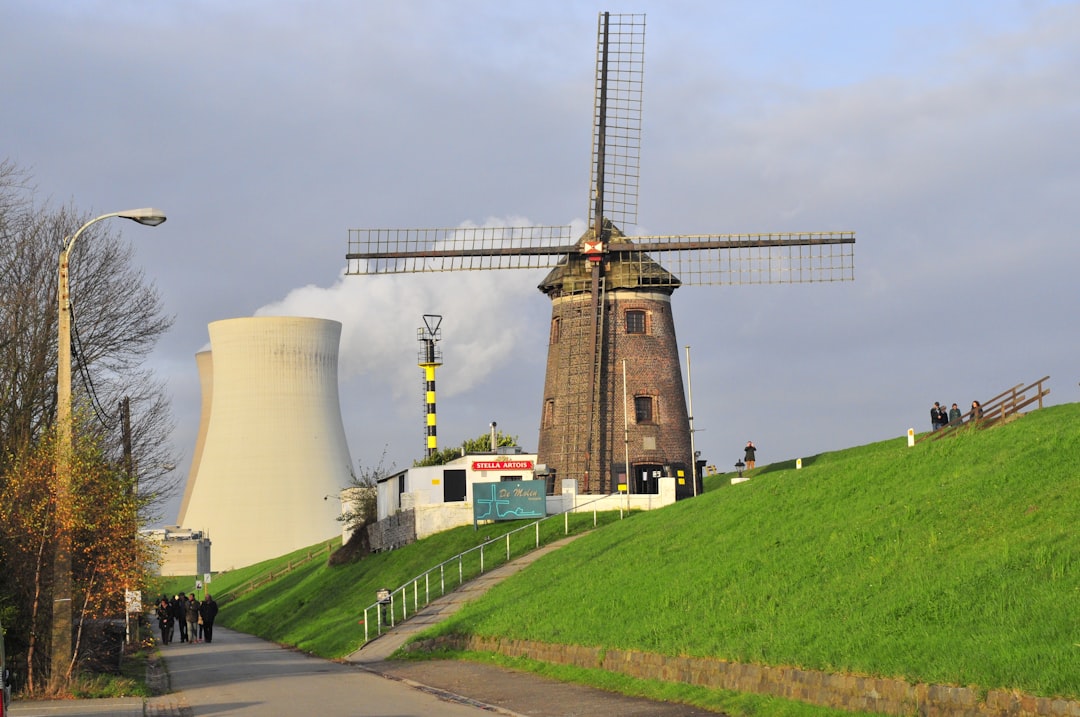
In Europe, Romania has an interesting history with this, where they built out a big nuclear facility in the 1980s under the communist dictatorship. And it has really served them now, where it has given them some of the cheapest energy prices in Europe and insulated them from the problems that have come with the war in Ukraine and the shortages of gas and gas as a geopolitical tool that Russia uses against some of its former Soviet bloc countries. And so that has really helped them. They are now planning to build two more reactors and complete this big facility that they were building in Romania to begin with.
I think another very poignant example is Finland. Finland, in March, opened the first new nuclear reactor in Western Europe in 15 years. It had been 15 years since anyone in Western Europe had done this, 25 years if you don't count the Czech Republic, being formerly Soviet aligned, as being part of Western Europe. And so it's been almost a quarter century since anyone in that part of the world had done anything like this. This reactor in Finland had been delayed, but ultimately it came online.
And when it came online, it made it so that a tiny speck of an island off this country's southwest coast was suddenly capable of delivering nearly 40 percent of the country's energy or electricity needs. It was the third largest reactor, I believe, ever opened anywhere in the world. A really significant undertaking and a really significant industrial achievement for them that could not have come any sooner, in the sense that it opened in March, shortly after the war in Ukraine broke out.
Finland, with its long history of contentious geopolitics with its neighbor, Russia, very quickly took a hawkish stance against the invasion. Upon its decision to apply to join NATO, it was punished by Russia by having the 10 percent of electricity that it receives from generators in Russia cut off almost overnight. They were able to get that from other imports from Sweden and other places, but they were in a much safer and more secure place when that occurred, because they had the sovereignty that came of these big reactors within their borders powering so much of their grid.
That's a really great story. So Alex, again, I've loved your beat lately, it's terrific. I know that you're working on some great stuff when it comes to whether it's nuclear energy or carbon capture or hydrogen, or all these necessary solutions to address climate change. Where can folks find your work?
Well, they can find it on HuffPost. I do have a Substack and whenever I have bigger stories, I try to send out the pieces on there first. So you can find me at my last name, kaufman.substack.com. You can also find me on Twitter, @AlexCKaufman, and I'm pretty active in both those places.


